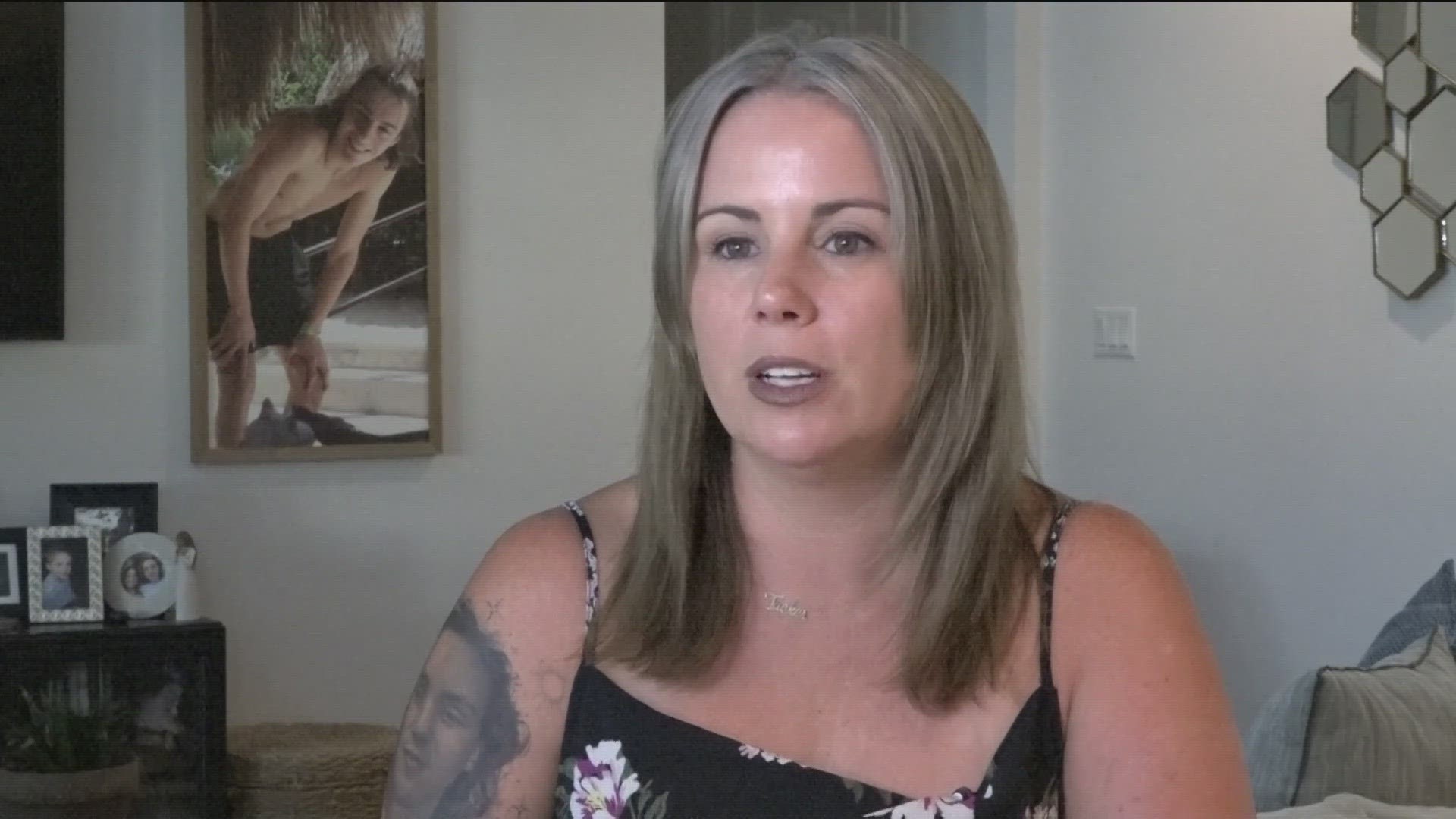WILLIAMSON COUNTY, Texas — Fentanyl-related deaths are spiking across the country, with overdose cases overwhelming several law enforcement agencies. Because of this, authorities are working to get ahead of the problem.
The Williamson County Sheriff's Office (WCSO) announced it's creating a task force aimed at educating people of the dangers of the drug, while prosecuting those who sell it.
A sergeant with the sheriff's office could not reveal their identity, but explained what this task force will do.
The agencies involved will be the sheriff's office, the Drug Enforcement Association (DEA), the Department of Homeland Security and other regional law enforcement officers. The task force will consist of 10 detectives and one counter-drug analyst.
Detectives within the task force will be deputized as federal agents and will be able to use resources at local and federal levels if needed, according to the sheriff's office.
The sergeant said with few people within the Narcotics Division and a rise in fentanyl cases, it has taken away from other cases.
"It's not going away. We need to get in front of it. We need to get more people," they said.
Williamson County reported 39 fentanyl overdose deaths in 2022. As of 2023, there are 22 reported overdose deaths with 17 pending toxicology reports.
The sheriff's office said although fentanyl is everywhere, parents are still unaware of the dangers the drug can do. That's where the education portion of the task force comes in.
Local nonprofit organizations such as Texas Against Fentanyl (TXAF) and A Change for Cam will help.
Stefanie Turner started TXAF after her 19-year-old son, Tucker Roe, died of fentanyl poisoning in 2021. She has been advocating in his honor and most recently helped get legislation passed which, if signed into law, would add curriculum for students about the dangers of fentanyl.
WCSO officials said they wanted the nonprofits involved to be able to share that knowledge, which Turner echoed every parent should have.
"They're making sure that we're we're hitting all of the weak spots of where fentanyl sneaks in and how can we support the collective," Turner said. "I also was a victim of not knowing what fentanyl is, seeing these signs, not knowing how to identify it and also not knowing the severity of it. I wasn't able to treat the problem for two months before I realized what fentanyl was."
The sheriff's office is currently waiting for grant money in order to have a location where members of the task force can meet in the same space.
While advocates and local leaders push education across the board, they only hope each step is key in slowing the spread.
"I think we can be really powerful and drive change," Turner said.

